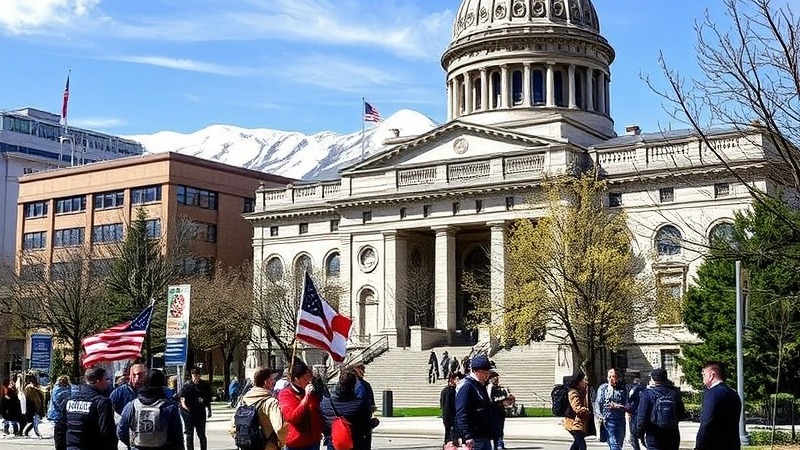
Denver Judge Dismisses Douglas County’s Lawsuit on State Immigration Laws
In a decisive move on immigration policy, a Denver district judge has dismissed a legal challenge by Douglas County against Colorado’s immigration laws that restrict cooperation with federal agencies like ICE. Judge David Goldberg's ruling came this week, declaring that Douglas County lacked the standing necessary to sue the state over these regulations.
The Legal and Political Backdrop
This case reflects a broader national debate on immigration policies, particularly those impacting local law enforcement's role in adhering to federal detention requests. Colorado's laws, notably House Bill 19-1124 and House Bill 23-1100, have faced criticism for limiting local collaboration with U.S. Immigration and Customs Enforcement. These laws prohibit local authorities from detaining undocumented immigrants solely based on ICE detainer requests and restrict new or renewed contracts with federal immigration authorities.
Implications for Local and Federal Relations
The ruling underscores tensions between federal immigration ambitions and state sovereignty, as evidenced by recent political maneuvers in response to federal immigration policies. Douglas County's intent was to uphold inter-agency cooperation, which they claim is sabotaged by the state’s current legal framework. Commissioner George Teal expressed dissatisfaction with the court’s decision and signaled an appeal to federal courts, reinforcing the county’s commitment to challenging limitations placed on local jurisdictions.
Historical Context and Background
The contentious dynamic between local law enforcement and federal immigration directives has been a long-standing aspect of U.S. immigration discourse. Colorado's legislative actions echo a broader trend of states asserting autonomy to govern how local entities engage with federal immigration authorities, harking back to tensions from previous administrations. This historical trajectory plays into contemporary debates over state versus federal jurisdiction.
Future Predictions and Trends
With former President Donald Trump poised to reclaim the White House, his rigid stance on immigration policies could instigate further conflicts between federal and state directives across the nation. Local governments might anticipate stricter federal immigration enforcement measures, prompting renewed legal challenges and policy re-evaluations. This ongoing push-pull will likely influence the shape of future immigration law and its integration with local agencies.
Counterarguments and Diverse Perspectives
While Douglas County asserts that restriction of cooperation limits governmental efficiency, proponents of Colorado’s laws argue these regulations protect immigrant communities and uphold human rights. The balance of maintaining public safety while ensuring equitable treatment for all residents remains a delicate issue, invoking strong opinions on either side about where lines should be drawn.
 Add Row
Add Row  Add
Add 

 Add Element
Add Element 


Write A Comment